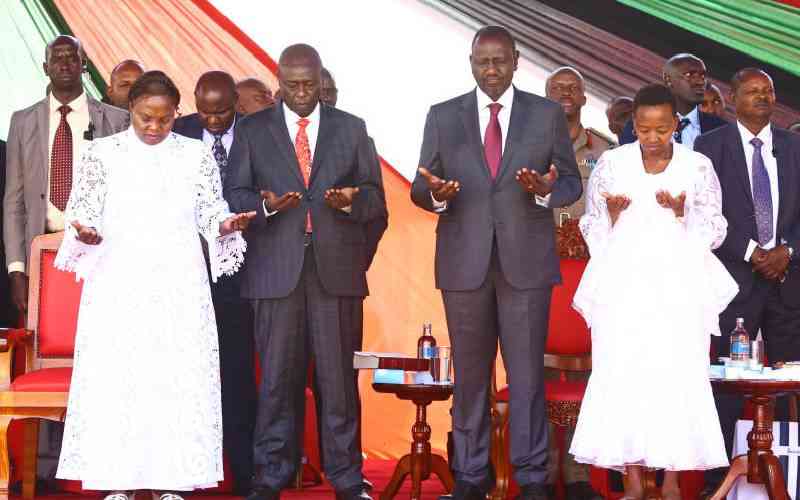
After the Nakuru and Nairobi prayer meetings, several people have raised interesting questions on the events. Some have wondered whether the new government has now turned to prayer as a solution to national problems and challenges, and whether this is a legitimate way to address national challenges - such as drought, security, economy and political dissentions.
Others have wondered whether the Kenya Kwanza government could be strategically using prayers as a disguise to muster its control on the Church - in what has been loosely termed as Church Capture. Still others wonder whether it could be the Church that is using prayers to capture the government.







